This article describes the useful properties of goat's milk and the cases when it can be harmful, and also tells you from what age it is possible to give it to children and in what form.
Contents
- Benefits and Harms of Goat's Milk for Children
- Can Goat's Milk for Infants?
- Can I feed my baby with goat's milk?
- From what age do goat milk give the baby?
- Can a child have an allergy to goat's milk?
- What kind of milk should be given to a child: goat or cow?
- How to feed a baby with goat's milk? How to bring a goat's milk to a child?
- Do you need to boil goat milk for children?
- How to properly dilute a goat's milk?
- Feeding a baby with goat's milk: advice and feedback
- Video: Which milk is more useful: cow or goat - Dr. Komarovsky?
- Video: Doctor Komarovsky, milk for children: when and what?
A significant portion of the human diet consists of dairy products, characterized by a great variety of forms, taste, consistency and composition. Nevertheless, traditional cow milk often acquires the status of an outcast on the table of families with a small child due to frequent cases of allergy to casein( a protein substance of cow's milk).
You can see goat milk on the shelves of shops not so often, but many heard about the healing properties of this product, and thought about replacing cow's milk in favor of goat in the children's menu.
What are the advantages and disadvantages of goat's milk, and what is its nutritional role in feeding children? We understand the intricacies of goat's milk.
Benefit and harm of goat's milk for children
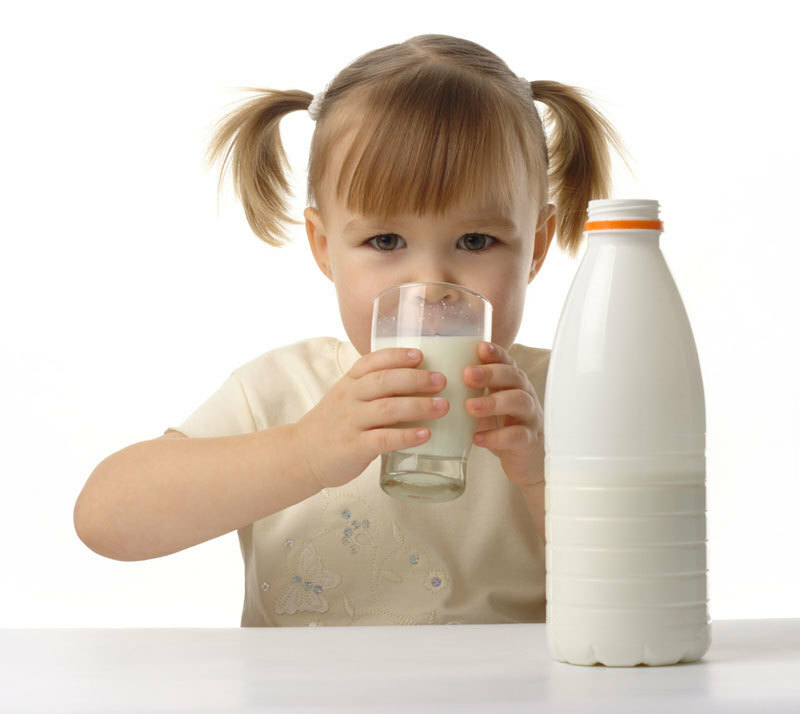 baby drinks goat's milk
baby drinks goat's milk Goat milk has a number of useful properties due to its rich composition:
- the presence of calcium, potassium, manganese, phosphorus, iron, magnesium and other trace elements in high quantities
- more vitamins A,C, B, PP and D than in cow's milk
- the presence of vitamin B12, the lack of which disturbs the division of bone marrow cells and the formation of red blood cells in the blood
- a small content of alpha fractions in casein that are the main winethe emergence of an allergy to cow milk
- high fat content due to unsaturated acids, which are needed by the body, in particular to reduce the "bad" cholesterol
- less lactose( milk sugar) than in cow's mother's milk, which makes it possible for people with lactose intolerance
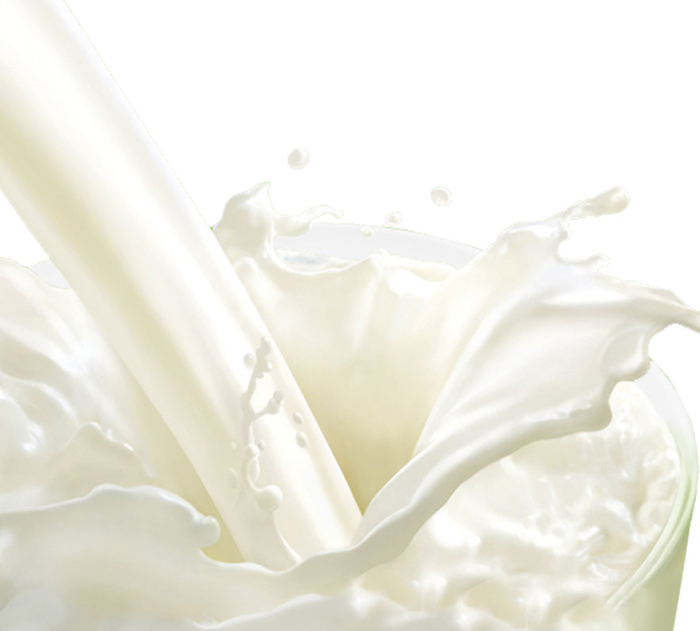 fresh goat milk
fresh goat milk Thanks to these properties, the competitive advantages of goat's milk are:
- , the best balance of microelements
IMPORTANT: Goat and cow's milk in itsthe composition has the same vitamins and nutrients, but the proportions in goat's milk are more advantageous.
- prevention of rickets in children, strengthening of the bone system
- a smaller percentage of cases of allergy
- good digestibility by the body
- beneficial effect and help in the treatment of gastritis, ulcers, dysbiosis, diabetes, obesity
- better digestion compared to cow's milk
- recovery after stress, weakening of immunity due todiseases, strong physical exertion
Despite this, a number of positive characteristics of goat's milk turns into a negative impact on the body is very smallchildren.
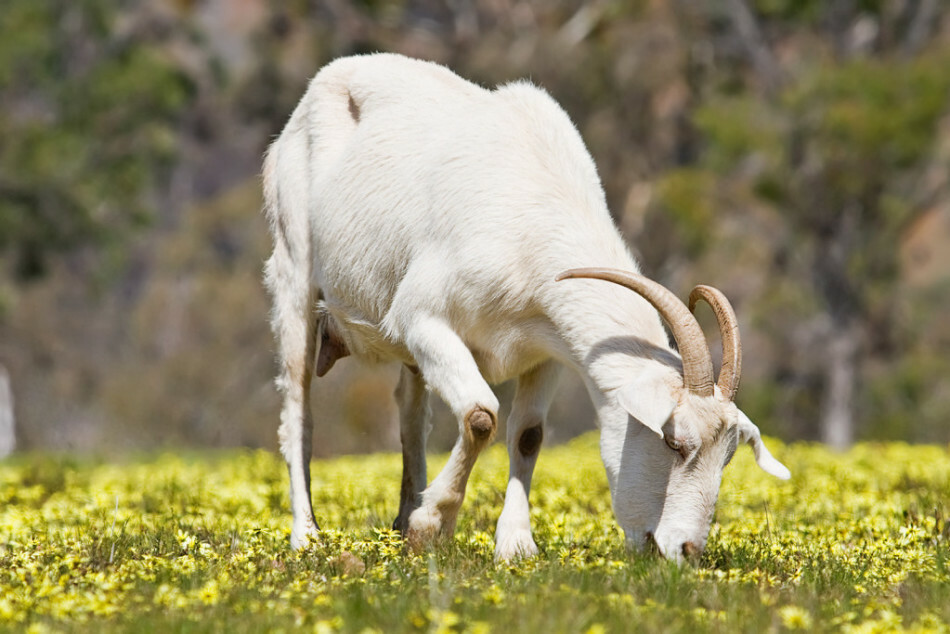 goat in the pasture
goat in the pasture The negative side of goat's milk is caused by the following:
- is low in folic acid, which, due to a lack of intake, can lead to the development of anemia of
- with a high concentration of microelements, in particular calcium and phosphorus, which increases the load on the immature excretory system of infants
- content of casein, which is digested by young children heavier than female breast milk
- high fat content, which for children up to 2-3 years can be associated with prolemami normal digestion
In addition, the use of raw milk carries the risk of getting into the human body antibiotics that are often given to animals and infecting with diseases such as:
- brucellosis
- tick-borne encephalitis
- tuberculosis
The risk of developing these diseases can be leveled by consuming boiled or pasteurized milk,but then the advantage of a high content of vitamins will also lose its significance.
Can goat milk be given to infants?
 baby with a bottle
baby with a bottle Despite the fact that goat's milk is in many ways superior to a cow's, it can not be a substitute for breast milk.
- Firstly, it does not contain all the necessary nursing baby nutrients, which deficiency can cause serious disturbances in the child's development and cause
- diseases Secondly, like cow's milk, goat's milk is casein( casein content of more than 75%), which affects the child's digestion processes not in the best way, in contrast to the milk of the mother, which contains mostly protein albumin easily digested by the child
IMPORTANT: To albumin milk( the most approximate to female)the mare and donkey's milk.
- Third, goat milk contains more minerals and vitamins than the body can absorb infant
IMPORTANT: Milk is a perfect source of animal feeding young animals relevant to humans, it is a foreign protein.
Thus, consumption of goat milk, as well as cow's milk, is not recommended for children under one year. The best nutrition for infants was and remains breast milk.
Alternatively, it is possible to use adapted mixtures based on cow or goat milk.
Can I feed my baby with goat's milk?
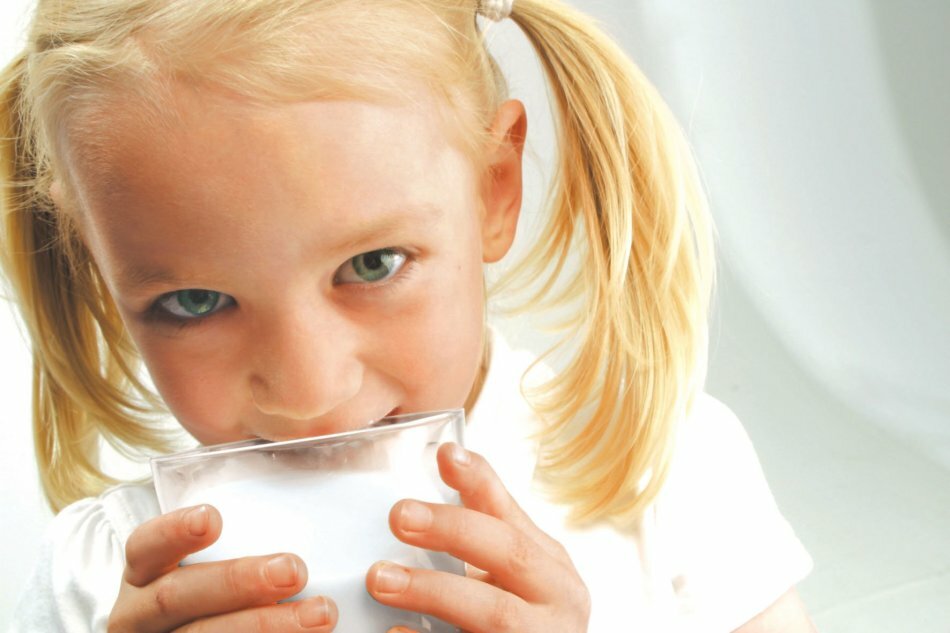 girl with a glass of goat milk
girl with a glass of goat milk For a growing child's organism goat's milk is a storehouse of valuable vitamins, calcium and other trace elements, as well as a source of healthy fats. Therefore, goat's milk can be used to feed the baby as an additional product on the children's table.
However, the recommended age limits should be adhered to.
From what age do goat milk give the baby?
The available benefits of goat's milk to the fullest extent the child is able to feel after 2-3 years. It is to this age that the digestive and excretory organs reach the required level of maturity, there is a sufficient number of appropriate enzymes for normal digestion and assimilation of animal milk.
However, as a strict recommendation not to give whole cow or goat milk to children, doctors call the age of up to a year. After this age, the milk of animals can be introduced into the diet of a healthy child in small quantities.
Can the child have a goat milk allergy?
In cases of a fairly common allergy in young children to cow's milk protein, many parents rush to replace it with goat's milk. However, despite the prevailing opinion about the hypoallergenicity of goat's milk, this is not true.
Any product with a whole protein content is a potential allergen. And goat's milk is no exception.
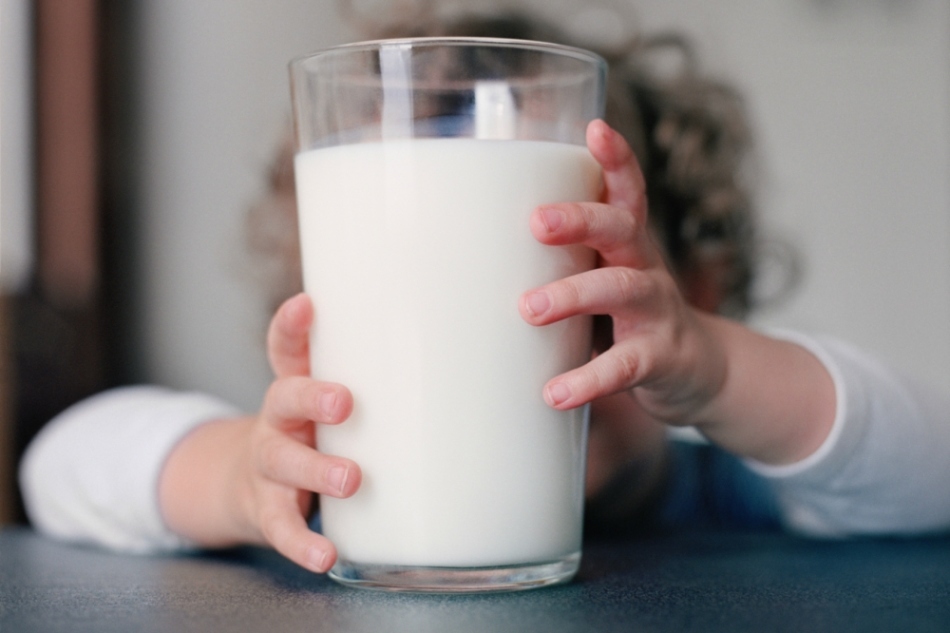 a glass of goat milk
a glass of goat milk Moreover, the varieties of proteins of this milk are similar to the composition of proteins contained in cow's milk. Only the proportions differ. In goat's milk, less s-1 casein, more beta casein. The first usually provokes the development of food allergies.
However, even a small amount of s-1 casein can suffice for the child to show signs of an allergy when consuming goat's milk.
IMPORTANT: The s-1 level of casein may differ in the milk of different goats depending on the animal's nutrition, its kind or seasonality.
Studies have shown that in 90% of cases in children with sensitization to cow's milk, the reaction to goat's milk was also noted. For the sake of justice, it should be noted that the limiting dose of goat milk, which provoked the emergence of allergies, was above the threshold value of cow's milk.
There are two types of potential allergies:
- for cow and goat milk
- for goat's milk in the absence of allergy to cow milk
The second case is rare, but studies confirming such a probability exist.
Thus, goat's milk is unambiguously less allergenic than cow's milk. However, if an infant is allergic to a mixture based on cow's milk, replacing it with a non-hydrolyzed mixture with goat's milk, can not always give an absolute guarantee of solving the problem. An alternative in this case should be sought in a hypoallergenic mixture based on hydrolyzed protein.
What kind of milk should be given to a child: goat or cow?
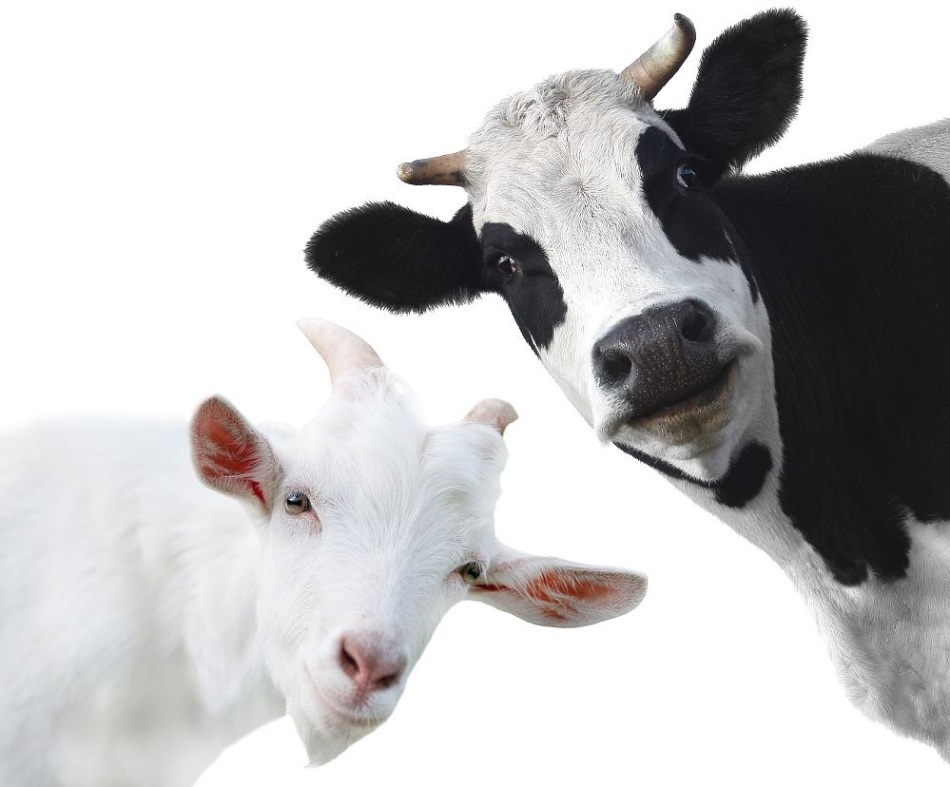 goat and cow
goat and cow Comparing the two types of milk of these animals, one can come to the conclusion about the greater nutritional value of goat's milk.
However, it should be noted that, to a greater extent, this applies to fresh milk. Given that the opportunity to purchase proven fresh milk from a domestic goat is not at all, consume mainly pasteurized milk, bought in the store. After heat treatment, the nutritional value of goat's milk is reduced. In addition, despite the above benefits of goat over cow's milk, the latter contains more folic acid and vitamin B12.
In other words, it's impossible to state unambiguously that cow's milk is less useful than goat's milk. Nevertheless, if a child has lactase deficiency or an allergy to cow's milk, there is a possibility that goat's milk will be a good substitute.
Do not forget about the specific taste and smell of goat's milk, which is not liked by all adults, not to mention children. Therefore, in the absence of contraindications to this or that milk, it should be guided by:
- personal preferences of the child
- availability of a safe option to consume fresh milk from a pet
How to feed a baby with goat's milk? How to bring a goat's milk to a child?
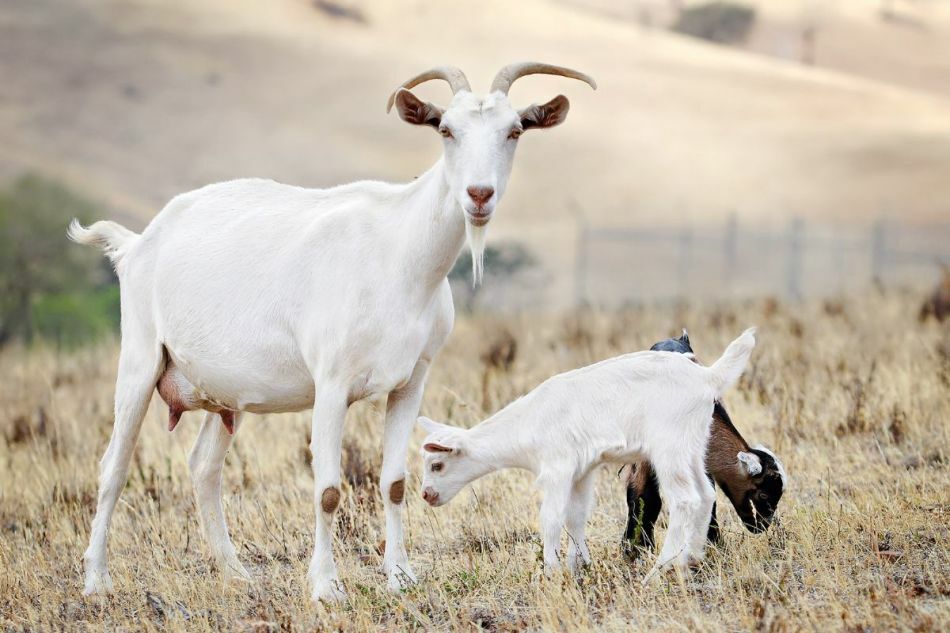 goat with cubs
goat with cubs - As mentioned, it is not recommended to give goat's milk, as well as cow's, to children up to one year due to enzymatic insufficiency and overburdening of the baby
- . Entering goat's milk into the baby's diet should be treated with caution, like any other new product.
- follows with a teaspoon, gradually increasing the dose of
- . Young children should be boiled and diluted with water
- . At an older age( at least after 3 years), the milk will be more useful in fresh unprocessed formand subject to sanitary norms
- Because of the high fat content of older children should limit the amount of goat milk per day 400 ml
Should I boil the goat milk for the kids?
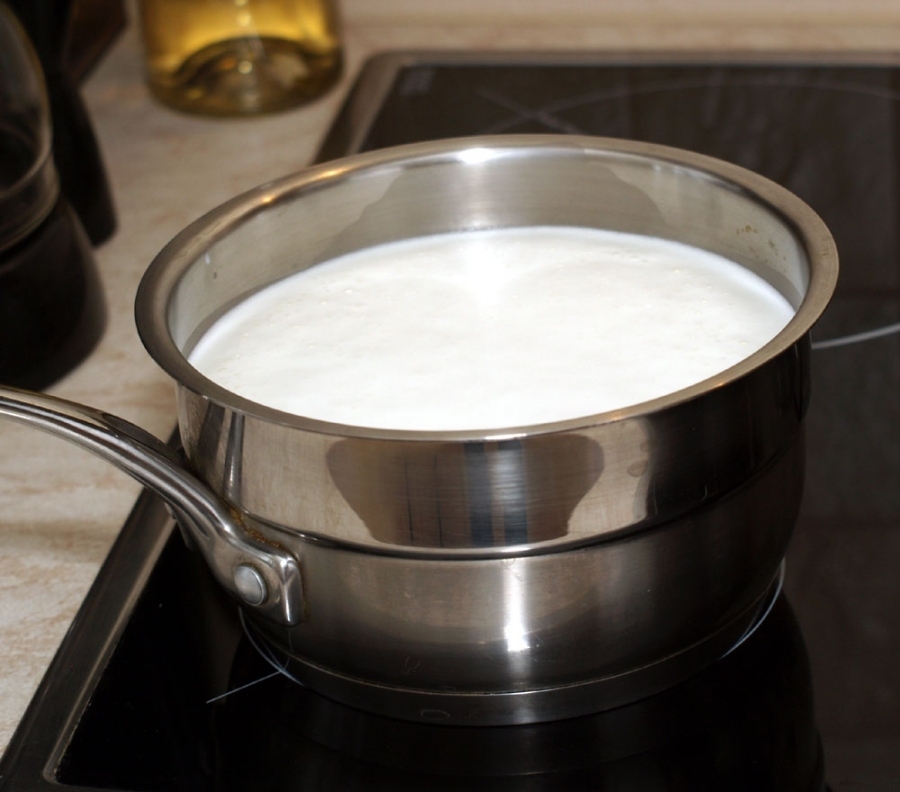 boiling milk
boiling milk After the heat treatment of milk, not only disease causing bacteria die, but also nutrients are destroyed. However, the potential risk of contracting dangerous infectious diseases in children, especially in small children, is still outweighed. Therefore, doctors recommend boiling milk before feeding a small child.
Children at an older age with confidence in the safety of milk, you can give it without boiling.
How to properly dilute a goat's milk?
To dilute goat's milk to children under three years of age are advised because of the high level of fat content and the concentration of nutrients that are difficult for the child's body to absorb in such quantities.
- First go boil goat milk, then dilute with boiled water in a 1: 4 ratio.
Diluted goat's milk loses its advantage of a high content of vitamins and trace elements, so older children can and preferably give milk in their pure form.
Feeding a baby with goat's milk: advice and feedback
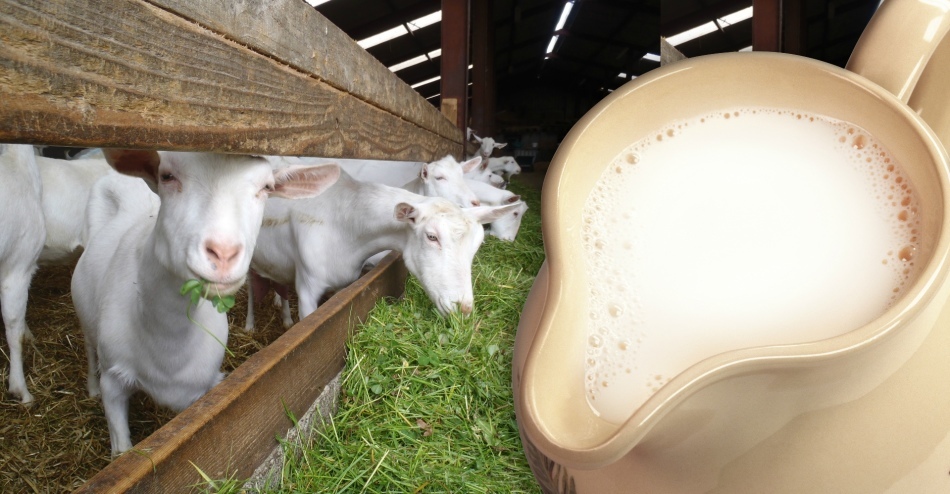 twin goat milk
twin goat milk - It's better not to risk the health of the crumbs and not to experiment with goat's milk until the baby is strong enough( up to a year)
- If the opportunity to breastfeed is completely absent, and the desire to attach an infant to the useful properties of goat's milk is large, you can use a special mixture on goatmilk, which is adapted for the child's organism
- How the animal was fed, what pastures it was grazing, and how fresh milk was stored - important criteria that should be paid attention before feeding the babypaired milk
- If there is an individual intolerance to cow's milk or lactose, you can try to replace it with goat's milk, which completely satisfies the body's nutritional needs from cow's milk
. Thus, goat's milk, if properly used and adheres to all recommendations, is indeed extremely beneficial to health, especially for a growing child's body.
